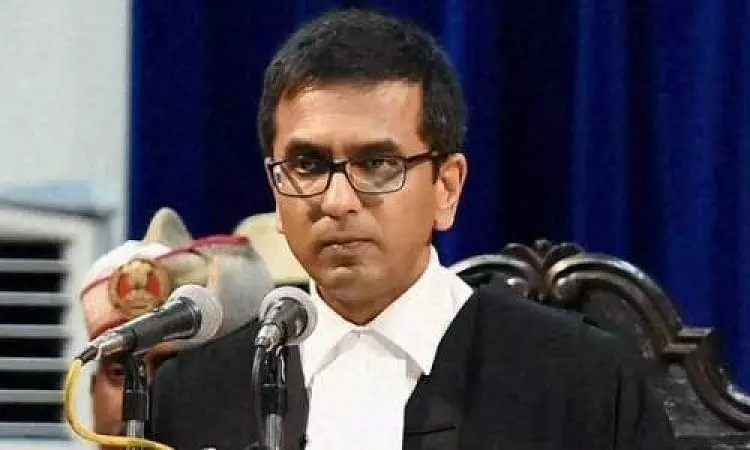
CJI denounces media trials; says narratives created make people guilty even before court decides
text_fieldsNew Delhi: Media trial can have long-lasting repercussions as it generates narratives which render a person guilty in the eyes of the public even before being convicted by a court, Chief Justice of India DY Chandrachud on Wednesday said.
Speaking as the chief guest at the 16th Ramnath Goenka Awards ceremony, he added that responsible journalism is the light of the truth that can lead us to a better future.
Flagging the dangers posed by trial by media, he said, “A major issue that has percolated our system is trial by media. The presumption of innocence postulates that a person is presumed innocent until found guilty by a court of law. This is one of the core tenets of law and legal processes.” He went on to add, “However, there have been instances when the media has carried narratives that make a person guilty in the eyes of the public, even before the court finds them guilty. This can have long-lasting repercussions on the life of the affected individuals, as well as on due process.” On responsible journalism, he said, “It is the engine that drives democracy forward, based on the quest for truth, justice, and equality. As we navigate the challenges of the digital age, it is more important than ever for journalists to maintain standards of accuracy, impartiality, and responsibility in their reporting.” The 50th Chief Justice of India said, journalism ought not to be “elitist, exclusionary or for that matter a selective profession”.
Emphasising on diverse representation in newsrooms, he said, “Another issue affecting the media is that of legitimacy. A diverse and representative newsroom is essential for media institutions to provide well-researched and complex stories that explore a multiplicity of perspectives and voices. Maintaining a diverse workforce is imperative for the longevity of any media platform.” “This is not just about providing different perspectives and viewpoints. Media institutions need to ensure that their newsroom culture reflects the diverse news content they are producing. Otherwise, audiences may question their authenticity. Journalism ought not to be elitist, exclusionary or for that matter a selective profession,” he added.
On legal journalism, the CJI said that they are the storytellers of the justice system shedding light on the complexities of the law.
“However, selective quoting of speeches and judgments of judges by journalists in India has become a matter of concern. This practice has a tendency to distort the public’s understanding of important legal issues. Judges’ decisions are often complex and nuanced, and selective quoting can give the impression that a judgment means something entirely different from what the judge actually intended. It is thus essential for journalists to provide a complete picture of events, rather than presenting a one-sided view”, he said, adding that journalists have a duty to report accurately and impartially.
On social media, the CJI said that in the recent past, social media has been a game changer for journalists in more ways than one and online platforms have provided an opportunity for individuals to launch their own online media channels.
He said that in that way, online platforms have led to the democratization of the media and years ago, it was the paucity of space which was a constraining factor and now perhaps it is the paucity of reader patience.
“Readers have short attention spans. News is reduced to shorts on YouTube or reels on Instagram. Our attention spans have seen a steady decline with the advent of social media. It is now the norm for short titbits of information to be conveyed through 280 characters or in a few seconds. This is, however, an unsatisfactory replacement for long-form or investigative pieces”, he said.
CJI Chandrachud, who gave awards to journalists said, in fact, there can be no replacement for such reportage and it is also proving to be a challenge for journalists to penetrate the echo chambers that social media has created and illuminate the truth.
With PTI inputs























